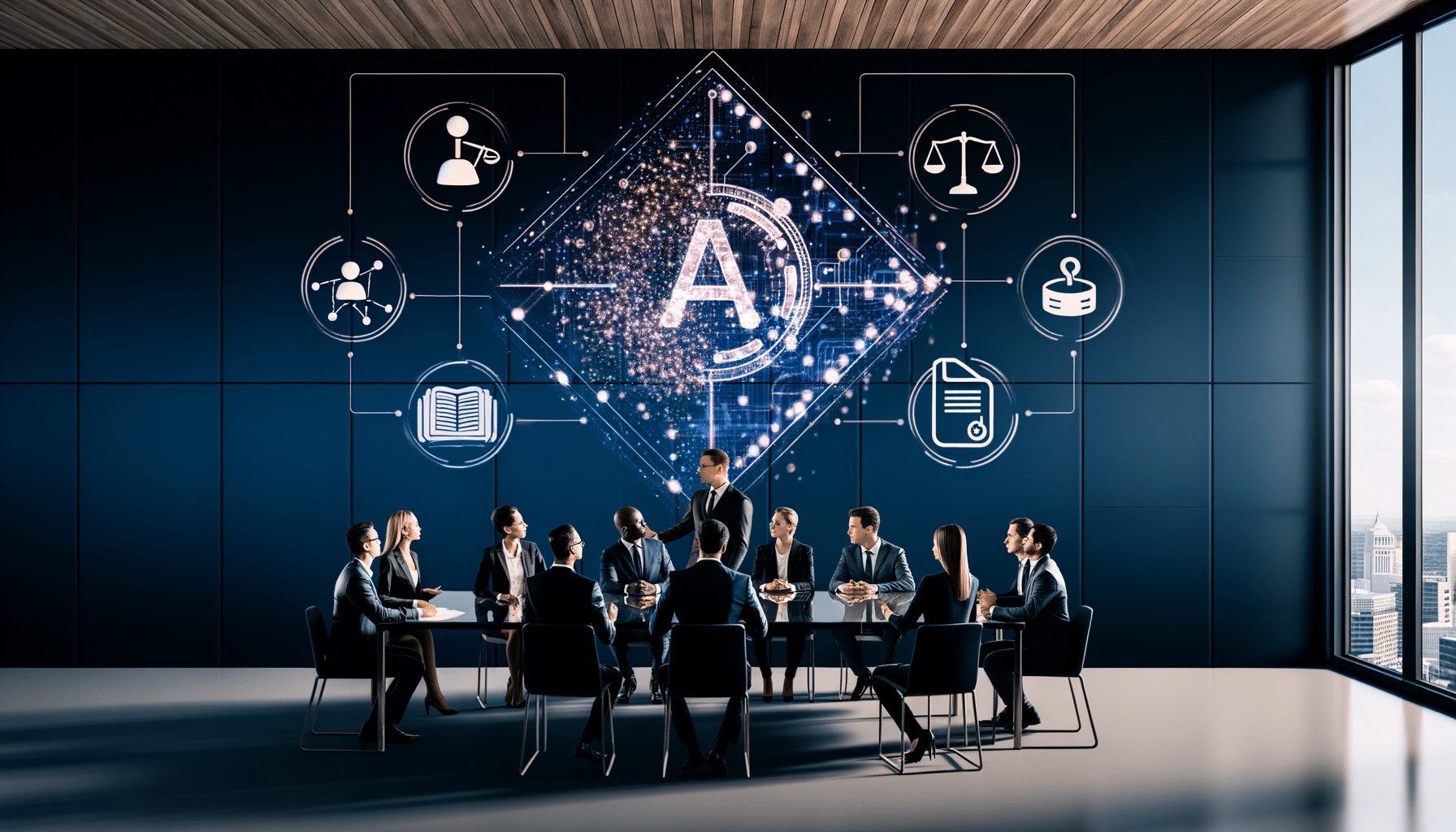Unveiling the Future: AI-Generated Contracts and Their Legal Implications
In the rapidly evolving world of legal technology, AI-generated contracts are making waves. As a founder immersed in the intersection of AI, blockchain, and record management, the transformative potential of this technology is not lost on me. However, with revolution comes responsibility, and the rise of AI-generated contracts is no exception. Here, I delve into both the opportunities and the intricate legal implications they present.
Embracing the Power of AI-Generated Contracts
Artificial Intelligence holds the promise of efficiency and precision. In the realm of contract drafting, it transforms a labor-intensive process into one that is streamlined and highly efficient.
- Efficiency: AI contracts significantly reduce the time required for drafting and reviewing legal documents, allowing legal teams to focus on complex, high-stakes tasks instead.
- Consistency and Accuracy: By eliminating human error, AI ensures that contracts adhere to a high level of consistency and accuracy, which is imperative in legal transactions.
- Cost-Effectiveness: As legal firms adopt AI technology, they can manage and scale their operations more economically, potentially reducing client costs.
The shift toward AI-driven processes is a natural progression as businesses seek to modernize their operations. But it’s not just about efficiency—it’s about transforming how legal frameworks are constructed and executed.
Legal Implications: Navigating New Challenges
While the benefits of AI-generated contracts are apparent, it’s crucial to acknowledge and prepare for the associated legal challenges.
1. Authority and Accountability
The heart of any legal document is the responsibility it designates. But when a machine drafts that document, who is held accountable? Determining ownership and responsibility in AI-generated contracts is still a grey area. It demands a reevaluation of traditional contract laws and how they apply to technology-driven solutions.
2. Bias and Discrimination
AI systems are only as unbiased as the data they’re trained on. If AI systems are trained on biased or incomplete datasets, the contracts they generate might inadvertently propagate or reinforce discrimination. Ensuring fairness and neutrality is vital, which requires unconditional collaboration between technologists and legal experts.
3. Privacy Concerns
AI-generated contracts often necessitate access to sensitive data, raising questions about privacy and data security. How personal data is used, shared, and protected within the process becomes a focal point for regulatory frameworks like GDPR and HIPAA.
The Legal Framework: Adapt or Lag Behind
With AI-generated contracts, the landscape of legal frameworks must adapt to new realities. This involves actively updating laws to specifically address AI’s role in contract generation and execution.
- Regulatory Standards: It’s imperative for legal systems to establish clear definitions and standards regarding AI-generated contracts and the responsibilities of parties involved.
- Compliance Management: As someone deeply invested in compliance technologies, I recognize the importance of systems that can dynamically adapt to new regulations.
The legal industry must work in tandem with technologists to craft rules that encapsulate ethical AI development and deployment effectively.
Moving Forward: Balancing Innovation with Policy
Ultimately, the uptake of AI in contract drafting signals an important shift in the legal real estate that law firms and regulatory bodies inhabit. Balancing innovation with thoughtful policy-making is crucial. This evolution, though promising, must be met with caution and a commitment to comprehensively exploring its ramifications.
As founders, entrepreneurs, and legal professionals, we must embrace this change with an open mind, acknowledging both the benefits and challenges. It’s not just about creating smarter contracts—it’s about creating a smarter framework within which these contracts can safely operate.
Conclusion: The Path to the Future
The advent of AI-generated contracts is a testament to the ongoing digital transformation within the legal sector. As practitioners in this domain, it’s our responsibility to not merely react to these changes, but shape them in a way that aligns with legal ethics, equity, and efficiency. Let’s explore further into the mechanics of AI, the legal theories that govern them, and how together, we can forge a future where technology enhances the practice of law responsibly. Follow to stay updated on these developments and more insights from my entrepreneurial journey.








